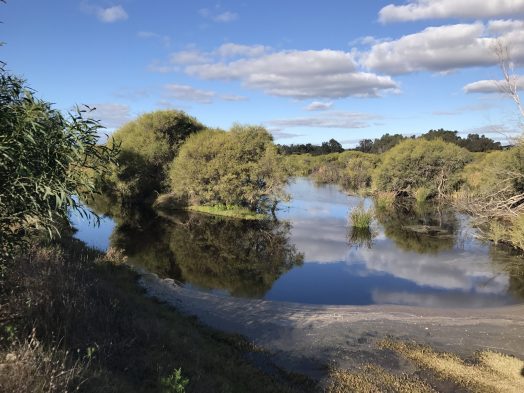Brabham Action Learning Partnership (IRP3)

Introduction
The Brabham Action Learning Partnership is an initiative of the CRC for Water Sensitive Cities (CRCWSC) and its WA partners. It is one of a number of case studies being undertaken as part of a national project addressing integrated urban and water planning to guide water sensitive urban development outcomes (IRP3). The Brabham case study sought to explore the opportunity presented by the Brabham site to influence and navigate the planning approvals process to deliver sustainable and liveable communities. It focused on optimising collaboration with key stakeholders to facilitate innovative integrated water solutions in the northeast growth corridor.
Through a series of collaborative workshops, the Brabham Action Learning Partnership sought to facilitate productive interactions among stakeholders to collectively resolve challenges around approvals processes, financing and ongoing management of new assets. By engaging with key government and industry stakeholders, the collaborative planning process attempted to:
- identify and resolve current policy constraints to the delivery of innovative development outcomes
- encourage stakeholders to cooperatively negotiate and approve innovative approaches for the delivery of water sensitive communities
- identify pathways for the implementation of innovative solutions through the planning and regulatory system in a timely manner.
Workshops
This workshop was the first of several seeking to facilitate a collaborative approach to resolving challenges around approvals processes, financing and ongoing management of new assets. Its purpose was to:
- collectively validate the technical and policy issues related to the proposed innovative water solutions for Brabham and explore one of the key issues in more detail; and
- outline next steps to resolve identified issues.
The workshop was held in two sessions. The morning session allowed broad discussion of the key water-related issues for the development. This provided support for a more detailed consideration of one of the key issues in the afternoon session.
The purpose of the second workshop was to:
- consider alternative implementation pathways for the proposed non-potable water supply system, and
- develop an agreed implementation pathway moving forward.
The objectives of the third workshop were to:
- discuss progress towards actions agreed at workshop 2 (see Brabham Water Innovation Collaboration Workshop #2, 7 June 19 – Workshop Summary) related to the use of rejected recharge as a source of water for irrigation purposes at Brabham;
- consider mechanisms to support collaborative delivery of trials and demonstrations; and
- highlight the required reforms for enabling the use or ‘mainstreaming’ of alternative water sources for irrigation of future development proposals
The objectives of the fourth workshop were to:
- collectively assess current practice in relation to integrated urban and water planning
- identify potential planning and governance ideas to support the delivery of water sensitive urban development, and
- finalise the IRP3 Brabham project discussion, including outstanding issues and next steps.
Publications
'Ideas for Brabham' discussion paper, which compiles ideas generated through a Research Synthesis exercise undertaken prior to the Brabham Action Learning Partnership.
Enabling water sensitive urban development: planning and governance opportunities for Perth, which describes the constraints to innovation within the WA planning system and discusses 11 opportunities for change. This report is focused on system-wide change to enable better development outcomes in the north-east growth corridor.
Brabham Action Learning Partnership: Case report, which describes the case methodology and research outcomes, focusing specifically on the Brabham development. The report summarises the technical and process constraints to innovation for Brabham, the short-term and long-term implementation pathways for the proposed subsoil drainage water solution, and shares lessons for setting up and maintaining multi-stakeholder collaborations.